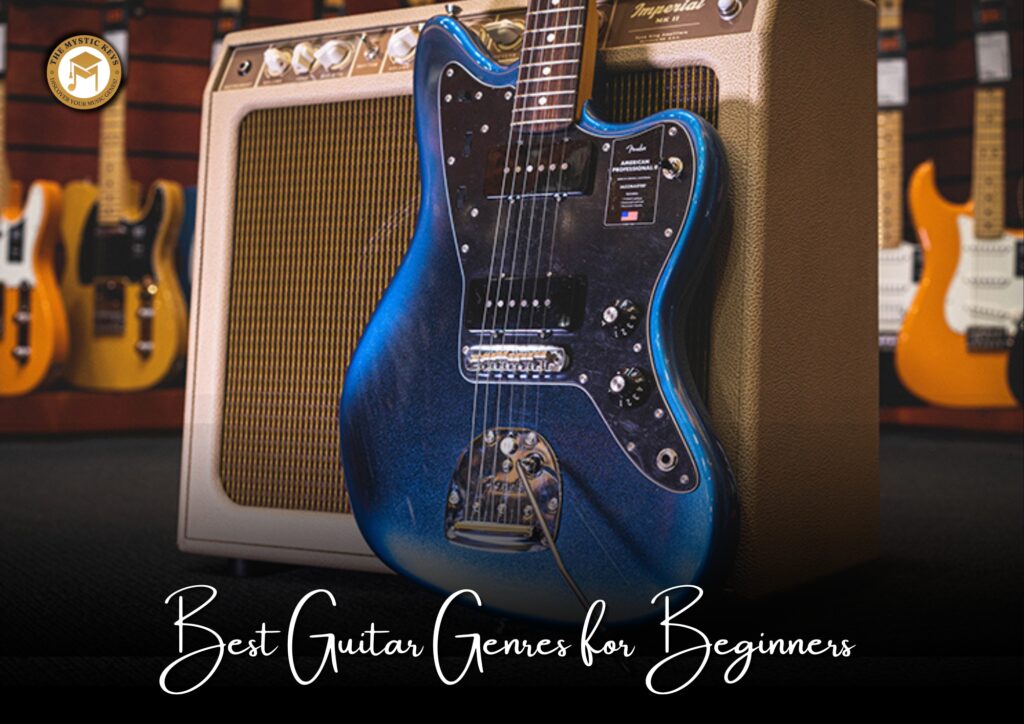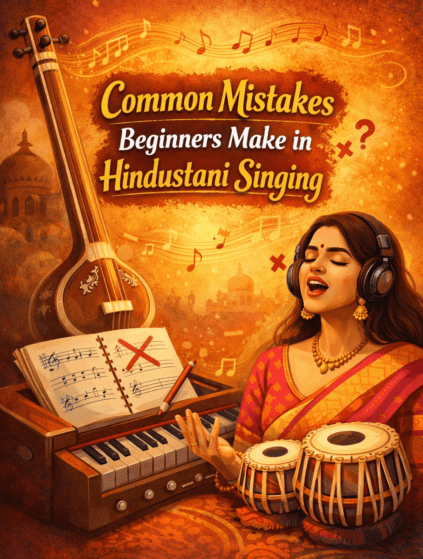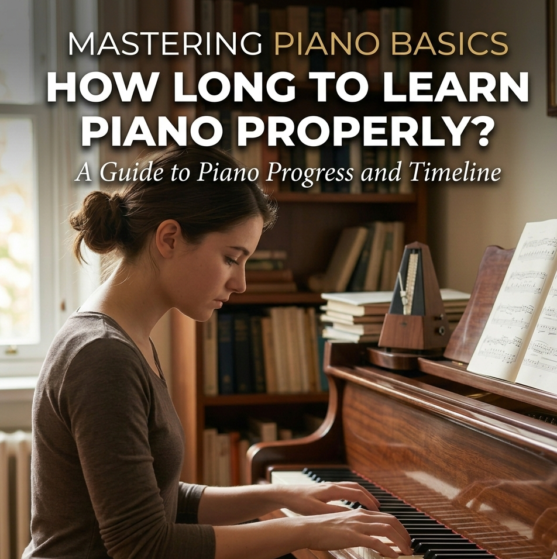Best Guitar Genres for Beginners | A Complete Guide
Starting to learn guitar is an exciting chapter. It’s filled with hope, curiosity, and a bit of uncertainty. The world of music is huge, and choosing where to begin can feel confusing. Should you start with simple chords? Try out solos? Or explore one of the best guitar genres for beginners?
That first step matters more than it seems. The genre you choose will shape how you learn and grow. The right one can make your journey smoother, your progress faster, and your practice more enjoyable.
Every genre has something unique to offer. Some focus on rhythm. Others highlight melody, expression, or technique. Picking the right starting point helps you stay motivated while building the skills that matter most.
In this guide, we’ll explore beginner-friendly genres. You’ll see what makes each style easy to approach, what you’ll learn from it, and how it can naturally lead to the next stage of your playing.
So, let’s begin with the genre that has welcomed countless beginners — the warm, familiar sound of folk music.
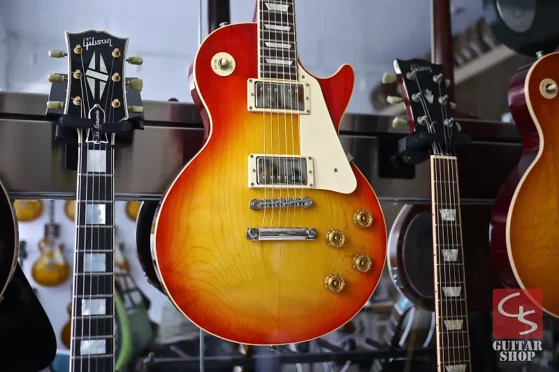
Folk Music | The Gentle Introduction
Folk music is like a welcoming friend who invites you to sit down and play without pressure. It’s filled with simple, memorable melodies and uses open chords that are easier on the fingers. Its repetitive strumming patterns provide a gentle rhythm to follow, making it ideal for those just starting out.
Because folk music focuses on storytelling and melody, it encourages you not just to play but to express yourself musically—a vital skill for any guitarist.
Having built your finger strength and chord-changing skills with folk’s straightforward approach, you might find yourself ready to play music that is more modern, upbeat, and globally popular.
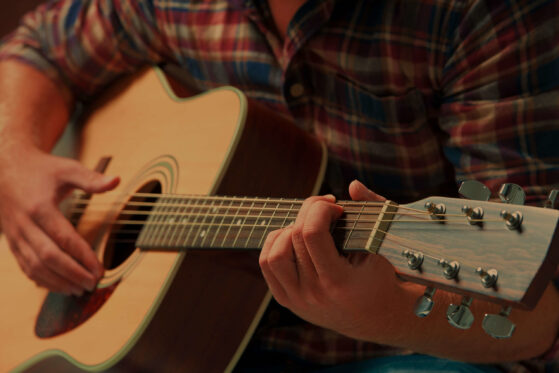
Pop Music | Catchy and Contemporary
Pop music is the soundtrack of many lives. Its repetitive chord progressions and familiar tunes give beginners a sense of accomplishment early on. Since pop songs mostly use simple chords and predictable rhythms, you can start jamming along to your favorite hits in no time.
This familiarity doesn’t just make practicing fun—it also helps you internalize rhythm and timing, essential skills for any guitarist. That’s why pop is often considered one of the best guitar genres for beginners who want quick, enjoyable progress.
Once you’re comfortable with pop’s accessible structure, many guitarists feel drawn to more expressive and soulful styles of music. This curiosity naturally leads us to the genre of blues.

Blues | The Soulful Foundation
Blues guitar playing teaches you to infuse emotion into every note. The genre is grounded in the iconic 12-bar blues progression, which is repetitive enough for beginners to master quickly, but rich enough to keep them coming back. Techniques such as bends, slides, and vibrato add expressiveness that goes beyond just playing the right notes.
Blues is also the musical root of many other genres, making it a key stepping stone in any guitarist’s development.
Having embraced the soulful expressiveness of blues, you may want to bring more energy and drive into your playing — a natural progression into the high-octane world of rock.
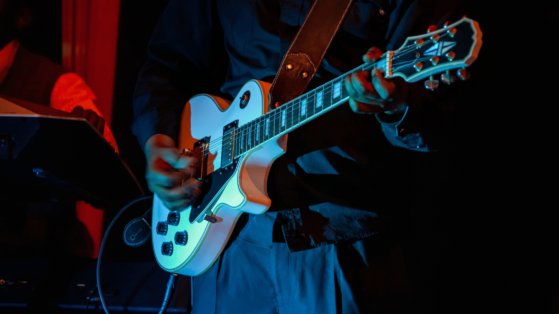
Rock | Power Chords and Riffs
Rock music is often the genre that many imagine when they think of guitar. Its energy, attitude, and memorable riffs make it exhilarating to play. For beginners, rock offers the advantage of using power chords, which are simpler than full chords but sound full and powerful. It’s no surprise that rock is considered one of the best guitar genres to start with, thanks to its balance of simplicity and excitement.
Learning to play rock rhythms and riffs develops your timing, hand coordination, and stamina — key elements for any serious guitarist.
As your skills improve with rock’s powerful rhythms, you might find yourself fascinated by genres that combine melody with intricate picking techniques, such as country music.
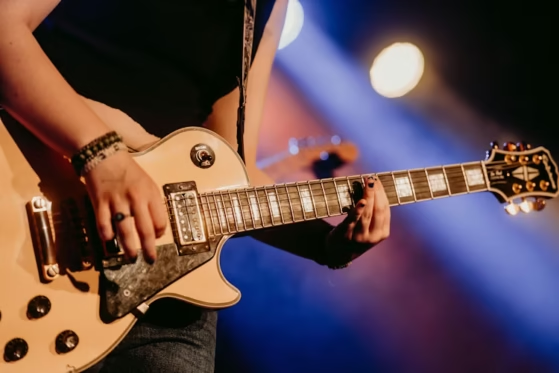
Country | Melodic Picking and Rhythmic Flair
Country music blends the rhythmic elements you’ve learned with melodic fingerpicking and embellishments. This style teaches you how to coordinate your hands independently — your right hand picking patterns while your left hand changes chords fluidly.
This dual focus makes country an excellent genre to deepen your technical skills while still playing accessible and enjoyable songs.
Once you’re comfortable with country’s blend of melody and rhythm, you may want to explore styles that emphasize groove and feel over speed — turning your attention to reggae.
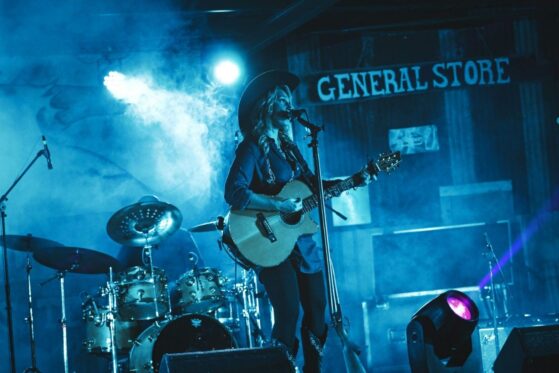
Reggae | The Art of Groove and Timing
Reggae guitar is defined by its distinctive off-beat strumming pattern, famously known as the “skank.” Rather than focusing on flashy solos or speed, reggae emphasizes groove, rhythm, and feel — qualities that are essential for building musical maturity. This makes reggae an excellent choice among the best guitar genres for beginners who want to sharpen their timing and improve right-hand control early in their journey.
What makes reggae even more valuable for new players is how it trains your ear to internalize the pulse of the music. You learn to play not just the notes, but the spaces between them — syncing naturally with drums, bass, and vocals. In doing so, your sense of groove deepens, and your coordination becomes more refined.
After spending time in the relaxed yet rhythmically precise world of reggae, many guitarists feel drawn toward developing greater finger independence and tonal clarity. This transition naturally opens the door to the disciplined and expressive techniques of classical guitar — a genre that challenges your technique while expanding your musical vocabulary.

Classical Guitar | Technique, Precision, and Expression
Classical guitar might seem daunting, but it offers unmatched opportunities to build fingerstyle technique, reading skills, and disciplined practice habits. Learning classical pieces teaches you how to play melodies and harmonies simultaneously and develop perfect posture and tone.
These skills are foundational and can enrich your playing no matter which genre you choose to explore next.
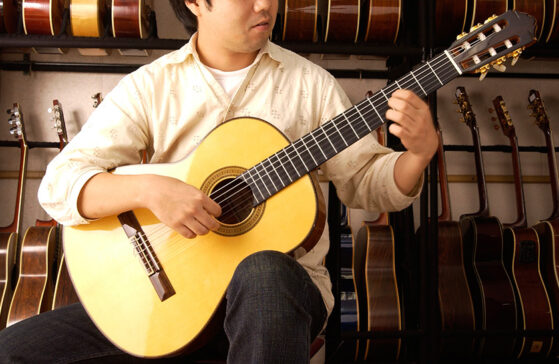
Bringing It All Together | How to Choose Your First Genre
You’ve now seen how each genre offers unique benefits and challenges, designed to nurture different aspects of your guitar playing. Choosing your starting point should balance your personal musical tastes and the skills you want to develop first.
If you want to start slow and soulful, folk is a perfect choice.
If you enjoy modern hits and want quick results, pop will keep you motivated.
If expression and emotion appeal to you, dive into blues.
For energetic playing and driving rhythms, rock awaits.
If melody and fingerpicking intrigue you, explore country.
To develop groove and timing, try reggae.
For technical mastery and discipline, classical is unmatched.
Remember, your genre choice is not set in stone. Many guitarists blend styles or switch genres as they grow. The most important thing is to find music that inspires you to pick up your guitar every day.

Final Thoughts | Your Musical Journey Awaits
The guitar is a remarkably versatile and expressive instrument, capable of adapting to almost any musical style you can imagine. Whether you’re gently strumming acoustic melodies or rocking out with bold, electric tones, it all begins by exploring some of the best guitar genres—from folk and pop to blues, rock, country, reggae, and even classical. Each style opens new doors, helping you build core techniques, boost your confidence, and stay inspired as you grow.
As you progress, you’ll find that one genre often leads naturally to the next. The storytelling of folk may lead you into the catchy hooks of pop, while the soul of blues might awaken your passion for rock. Bit by bit, you’ll gain the tools to express yourself freely through music.
Your journey as a guitarist is uniquely yours—full of exciting discoveries, creative breakthroughs, and meaningful progress. So take the first step, embrace each genre along the way, and most importantly, enjoy the music you create.
Ready to begin? Join us at The Mystic Keys and start your journey with expert guidance. Whether you’re picking up a guitar for the first time or ready to turn up the volume, our Electric Guitar Lessons Online will take you from basic skills to powerful performance techniques. Let’s unlock your musical potential—one chord at a time.


